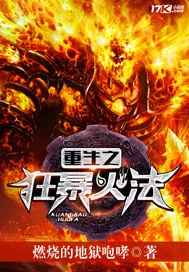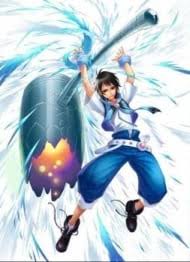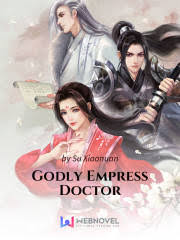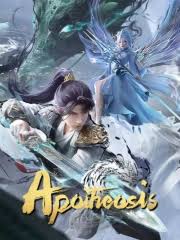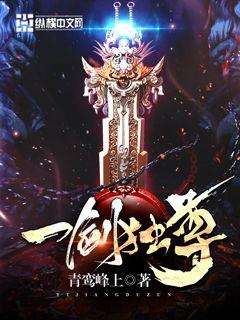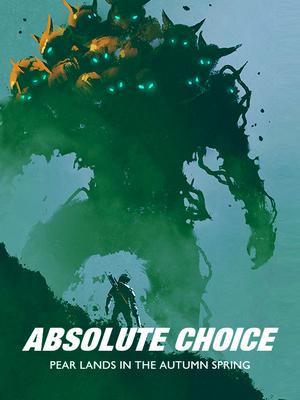The Story in 3 Sentences
A betrayed and broken Level 200 Mage, Lu Yang, is granted a second chance, hurtling back a decade to relive his life before his world crumbled.
Armed with future knowledge of the game’s deepest secrets, he meticulously rebuilds his power and fortune, rallying his loyal childhood friends to forge a new, unstoppable legacy.
From the gritty streets and early-game dungeons to commanding legions in apocalyptic wars against gods, his journey ignites a wildfire of vengeance and glory that reshapes the very fabric of his reality.
Why It Stands Out
1. The Ultimate Power Fantasy Payoff
It delivers the pure, unadulterated thrill of the underdog-turned-god. Readers live vicariously through Lu Yang as he leverages his future knowledge to outsmart enemies, monopolize resources, and dominate every challenge with satisfying, almost surgical precision. The joy isn’t just in his power, but in the cathartic dismantling of those who wronged him and the meticulous construction of his empire from the ground up.
2. Brotherhood as the Beating Heart
This isn’t a solo hero’s journey. The core emotional engine is Lu Yang’s unwavering loyalty to his brothers. His entire mission is fueled by a desire to lift them out of poverty and protect them from the suffering of his past life. Their camaraderie, shared struggles, and collective triumphs against overwhelming odds provide a powerful, grounding counterpoint to the fantastical power escalation, making the victories feel earned and deeply personal.
3. A Blueprint for Virtual World Domination
For fans of LitRPG and game-based worlds, the novel functions as a masterclass in strategic gameplay. It details dungeon strategies, economic exploits, gear optimization, and guild warfare with a level of granularity that feels authentic and deeply satisfying. It’s less about random luck and more about Lu Yang’s genius-level application of foreknowledge, turning the game’s systems into his personal playground and weapon.
Characters That Leave a Mark
There’s Lu Zhaoyu – one of Lu Yang’s oldest friends from the slums, whose presence in the early chapters signifies the core group’s humble beginnings and unwavering mutual trust .
You’ll meet Chen Feng, who alongside Lu Zhaoyu, represents the bedrock of Lu Yang’s support system, a brother-in-arms forged in childhood adversity and bound by shared destiny .
And Han Ying? They’re the one who stands shoulder-to-shoulder with Lu Yang and his inner circle during critical, large-scale battles, embodying the expanding circle of loyal allies drawn to Lu Yang’s leadership and cause .
The Flaws Fans Debate
The plot can feel formulaic and overly familiar, drawing heavy, sometimes derivative inspiration from other popular rebirth and game-based power fantasies.
The narrative’s relentless focus on power progression and strategic dominance can overshadow deeper character development or complex world-building outside the game mechanics.
Some readers find the sheer number of antagonists and repetitive cycles of betrayal and revenge to become predictable and slightly exhausting over its extensive chapter count.
Must-Experience Arcs
Ch. 1–50: Rebirth and the Crispy Eel Gambit – Lu Yang wakes in the past, immediately uses his future knowledge for small, clever wins like the “Crispy Electric Eel Formula,” and begins the delicate, high-stakes process of reuniting with his brothers and laying the foundation for his comeback .
Ch. 500–800: The Iron Blood Brotherhood Rises – This arc sees Lu Yang’s fledgling guild, built around his core group of brothers, solidify its power. They engage in large-scale PvP, conquer key territories, and face off against major rival guilds and notorious figures like Black Blood, marking their transition from players to power players .
Ch. 2400–2700: War of the Old and New Gods – The stakes reach their zenith as Lu Yang and his now-legendary forces are thrust into a cataclysmic, world-altering conflict between ancient deities and emerging powers, forcing him to leverage every ounce of his knowledge and strength to protect everything he’s built .
Killer Quotes
“Brothers, the last life has suffered so much with me, how can I make you poor again in this life.”
“Having such a group of brothers is Lu Yang’s greatest happiness.”
“Destiny made a joke with him. He was betrayed and everything he worked for was taken away. He had to get it back.”
Cultural Impact
It has cultivated a dedicated, if niche, fanbase on platforms like NovelUpdates, celebrated for its satisfying execution of the rebirth power fantasy trope.
The novel is frequently recommended alongside giants like “Rebirth of the Thief Who Roamed The World,” serving as a benchmark for readers seeking a similar, game-centric revenge and progression story.
Its enduring popularity, evidenced by thousands of chapters and consistent reader lists, speaks to its success in delivering a potent, wish-fulfillment narrative that resonates deeply within its genre.
Final Verdict
Start Here If You Want:
A cathartic, no-holds-barred power trip where the hero always has the upper hand.
A story where loyalty and brotherhood are the ultimate currencies, more valuable than any legendary item.
A detailed, strategic dive into a virtual world where knowledge truly is power, and seeing the “cheat code” in action is the main attraction.
Study If You Love:
The intricate mechanics and social dynamics of fictional game worlds and how a protagonist can exploit them.
The psychological drive of a protagonist fueled by past trauma and a desperate need to rewrite history.
The evolution of a found family narrative within the high-stakes, often isolating context of a competitive online game.
Avoid If You Prefer:
Complex, morally ambiguous characters and plots that subvert genre expectations.
Stories with a strong focus on romance or deep, introspective character studies outside the core power fantasy.
Novels with tight, concise pacing, as its sprawling length and formulaic structure can feel repetitive over time.
